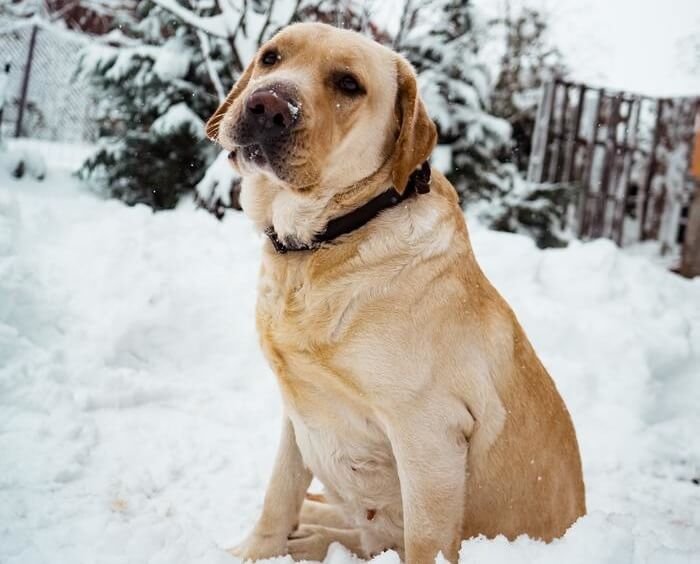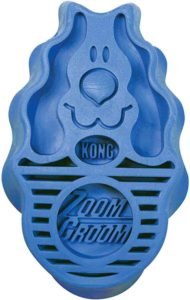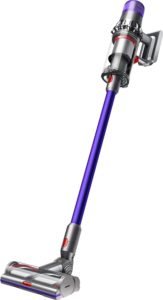When you have a Labrador in your house, you find fur everywhere. On the bed, on the floor, sofa, and even sometimes maybe in your food. An experienced Labrador owner will surely laugh if someone ever asks him whether a Labrador sheds fur.
But if you are new to Labradors and you ask me the question, “Do Labs shed?” I can straightly tell you, Yes, they shed.
If you ask me “Do Labs shed a lot?”, I would say, sometimes they shed a lot, especially if proper care is not taken.
As i already told you if you have a Lab and do not maintain some practices, you will find fur everywhere. I even remember my experience of finding my Lab’s fur in my coffee cup.
But why does this happen? Why do Labradors shed? Do they shed normally like other dog breeds or do they shed excessively? How to deal with this issue?
This article explains you everything related to your Labrador retriever shedding and provides you with the top 5 Labrador shedding solutions to deal with this issue effectively.
Do Labs Shed?- Top 5 Labrador Shedding Solutions
Before discussing the top 5 ways to avoid the menace of your Lab fur everywhere, it is important for you to understand certain aspects regarding your Labrador shedding. Understanding these important aspects will help you to deal with this issue of shedding more effectively.
Firstly…
Why do Labradors shed a lot?
You might be thinking, why does my Lab shed so much?
Let me explain.
Have you ever heard the word moulting?
Moulting is the process of shedding some parts of the body such as feathers, skin or fur during some specific time of a year. This is a routine process performed by the animals and birds in order to protect themselves from the changing harsh outer climates.
This happens with our dogs like Labradors too.
Dogs that were bred to work outdoors with harsh climates need to protect themselves by equipping themselves with a natural defence mechanism.

Thus your Labrador has its protective mechanism too. It has a special double coat that transforms into a thinner version as the summer approaches and changes itself into a thicker version as winter approaches. As Labradors are double-coated breeds they shed a lot when compared with other single-coated dog breeds.
Also, Labradors belong to the areas of colder climates and require thick fur over them to protect themselves, especially during the winters and water-related activities. But this thick coat is not very much required during the summer.
Hence it blows off its thick coat as summer approaches.
How much do Labs shed? How bad do Labs shed?
This question may seem funny to an experienced Labrador owner. Because when you have a Lab which is not maintained properly, you will see its fur everywhere in the house. Sometimes even maybe in your cup of coffee, as i told you before.
This shedding increases especially during the moulting season. I will explain regarding the moulting season later.
If you move to areas of a warmer climate, you can observe an increased amount of shedding, whereas staying in colder areas may not increase the amount of shedding in your Lab.
During the phase of “coat blow out” you notice a significant amount of excess coat shedding whereas, during the other time of the year, the amount of shedding might be a little low.
Whatever the case, if you have a Labrador or if you want to bring a Labrador into your life, you have to learn to deal with the heavy shedding process.
When do Labradors shed?
So, when do Labs shed? Is there any specific time?
Although Labradors shed some amount of fur throughout the year, there are specific periods of time when they shed a significant amount of fur. You may call it the period of Labrador moulting or simply the Labrador shedding season.
You notice this to happen twice a year. The Labrador moulting season usually occurs before the arrival of summer and before the arrival of winter. So it usually coincides with the spring and autumn seasons.

This process of moulting used to be dependant on nature and its climatic conditions. But it is still being continued in its genetics, in spite of your dog staying in air-conditioned rooms all the year-round.
When your Lab has a thicker coat, it makes him hotter in summer. Then it becomes difficult for him to regulate its body temperature. So it has to shed its thicker coat before the arrival of summer to adjust itself to the upcoming summer weather. Thus a heavy shedding period occurs before the summer season.
For my Lab, i usually notice this shedding period around March or April.
The summer gets over and your dog has to equip itself and protect itself from the harsh and cold winters. Before the winter season begins, it sheds all the lighter coat formed before the summer season and develops the coat into a thicker version.
Actually i have not observed this very prominently in case of my Labrador, but this usually happens during the months of September or October.
Thus a Labrador sheds its coat predominantly during these two periods, along with the normal shedding that occurs throughout the year.
Top 5 Labrador shedding solutions
It always doesn’t seem happy to see your house, clothes and furniture covered with fur. Before the issue of shedding becomes excessive and annoying, it is important to know how to stop a Lab from shedding.
Actually you cannot stop Labrador shedding which is its natural body process, but you can minimize this issue to an extent that it nowhere irritates or causes discomfort to you.
Follow these 5 amazing techniques which i usually follow, to manage your Labrador shedding.
1. High-quality diet and supplements
A healthy dog coat and skin begins with proper nutrition. The outer look of your Lab surely depends upon what goes inside its body. Lack of nutritious and balanced diet will increase the amount of shedding in your dog.
If that is the case, you have to do some modifications to your dog’s food in order to turn it into a balanced diet.
Always remember that your dog needs a good amount of proteins and fats in its diet. Its diet should also include vitamins, minerals and little amount of carbohydrates too.

Many dog owners whose dogs are fed on raw meat and essential vegetables said that they have observed less shedding in their dogs.
So, make sure that your dog’s diet includes the required proteins, fats and also the required amounts of essential fatty acids. These essential fatty acids help in keeping your dog’s skin and coat healthy.
Adding probiotics to your dog’s diet also works well by maintaining the gut balance which in turn maintains healthy skin and coat.
One important reason that your dog might be having excess shedding can be due to the presence of allergens, especially in its food. Every dog might not react to the same allergen in the same way. Your dog might be allergic to certain allergens or a combination of them.
Hence if any food is causing allergic symptoms in your dog, this, in turn, can lead to excessive shedding. Some common foods that might cause allergic reactions in your dog are beef, eggs, milk, corn, wheat and soy.
Keep an eye on the presence of these allergens in your dog food, because most of the commercial dog foods have corn and other unnecessary ingredients as basic fillers.
2. Effective Grooming
Grooming may seem to be a simple solution for you, but trust me, it works like magic.
I have been living my life with Labradors from the past 10 years and i know how they shed their fur all over the house. I have found that grooming its coat is the best solution so far, to reduce the amount of fur all over the house.
Brush your Lab regularly in order to decrease the amount of shedding all over the house.
You can either prefer a shorter grooming session frequently or a longer grooming session every week. I usually prefer a long grooming session of about 15-20 minute every week, and that worked for my Lab. But during the shedding season, you may have to brush your doggy friend more frequently, maybe a couple of times per week to manage its shedding effectively.
You need an effective tool to deal with its shedding. The zoom groom brush works perfectly well for your Labrador. It is not too harsh on the skin but removes the dead hair effectively.
It also acts as a massaging tool and skin stimulant for your Lab. Your Lab will enjoy it.
The other effective tool is furminator. This is quite an effective tool which removes the loose undercoat perfectly.
Some owners may not prefer this, as they think that it might be harsh on some areas of your dog’s skin where the coat is thin. For example, my Lab has a very thin coat on her belly. In such cases, the brushing has to be done more carefully, so that the grooming does not cause any damage to your dog’s skin.
3. Bathing using a de-shedding shampoo
Regular baths at the right time will help in reducing the amount of shedding inside the house. But what do regular baths mean? Does it mean weekly twice or weekly once? Of course not at all.
Frequent baths will strip away your dog’s natural oils which can lead to skin dryness, irritation and consequently more shedding.
Bathe your Lab monthly once and it helps in loosening the extra fur which can be removed with a gentle massage. There are some dog shampoos that are effective in protecting your dog’s coat and reducing the amount of shedding. Hence, a good de-shedding shampoo like furminator or a good oatmeal dog shampoo will do wonders. The oatmeal shampoo helps in soothing and moisturizing your dog’s skin and helps in limiting the amount of fur during shedding.
Or else you can opt for a professional de-shed bath to reduce the amount of shedding. Take your dog to a dog salon where he gets a bath with a good quality de-shed shampoo. At the salon, after the bath, they usually blow-dry your dog’s coat using high force blow dryers which remove all the excess fur that gets loosen during the bath.
4. Effective vacuum cleaner
It saves a lot of time and energy if you have a vacuum cleaner that does the job of cleaning your dog’s fur. Although investing in a vacuum cleaner causes an extra burden on your pocket, it is worth investing in it.
Instead of regular vacuum cleaners, you could get a pet-specific one for effective cleaning of your dog fur.
Luckily, there are many vacuum cleaners in the market that are specifically designed for dealing with dog’s fur. A vacuum cleaner would be surely helpful in cleaning the fur spread over all your house. It would be surely helpful especially during your Lab’s shedding season.
5. Reduce stress in your Lab
Shedding in your Lab increases when it is anxious or stressed.
Have you ever noticed this? If you notice carefully, your dog tends to shed more during its entry into the vet’s room. Any other stressful activities such as meeting new people, new big dogs, or going to new places could trigger this shedding in your dog.
The activities that cause stress differs from dog to dog. But as soon as your dog gets stressed it starts blowing its coat. You could notice its fur flying and fall all over the place.
You can call this stress-induced shedding in dogs.
To avoid this kind of shedding, it is important to keep your dog calm during such stressful events. Make your dog participate in activities that are relaxing and calming for him. This can reduce the overall stress levels of your dog.
Getting anxious about certain events is usually a behaviour issue. Hence it is essential to adopt desensitizing techniques and behavioural training to make your dog free of stress during such situations.
What about shaving your Labrador?
Instead of dealing with all these shedding related problems, you might think of shaving your Lab’s coat.
I even heard people asking me, whether they can shave their Lab’s coat in order to deal with the shedding issue.
If you want me to give a straight answer. I will say No.
Because shaving is never an option to deal with shedding.
Not only with respect to shedding, but shaving also should not be an option for any issue, unless prescribed by your vet for any specific condition.
Your Lab’s coat has a purpose and removing it will make your dog vulnerable to the temperature changes. Yes, if shaved, your Lab will face difficulty in controlling its body temperature. It will also make your dog’s skin vulnerable to various skin issues.
Here is our detailed article that explains the ill effects of shaving your Labrador.
What if your Lab is shedding excessively? When to worry?
I want you to understand something important. There is a difference between normal Labrador shedding and its hair fall. Hair fall or hair loss which is very excessive does not come under the normal shedding process.
If your dog is losing a lot of hair to the extent that its skin is visible or if the hair loss is excessive in the form of patches, it means that your Lab is suffering from some underlying condition which is causing the excessive loss of its fur.
Have a look at our article on hair fall in Labradors for your better understanding.
In such cases, it is better to consult your vet to diagnose the condition that is causing the hair loss and treat it effectively. I had this experience of hair loss with my Lab when he got affected with fleas in the past. As a responsible dog owner, it is important to identify and differentiate between your regular Labrador shedding and hair loss.




